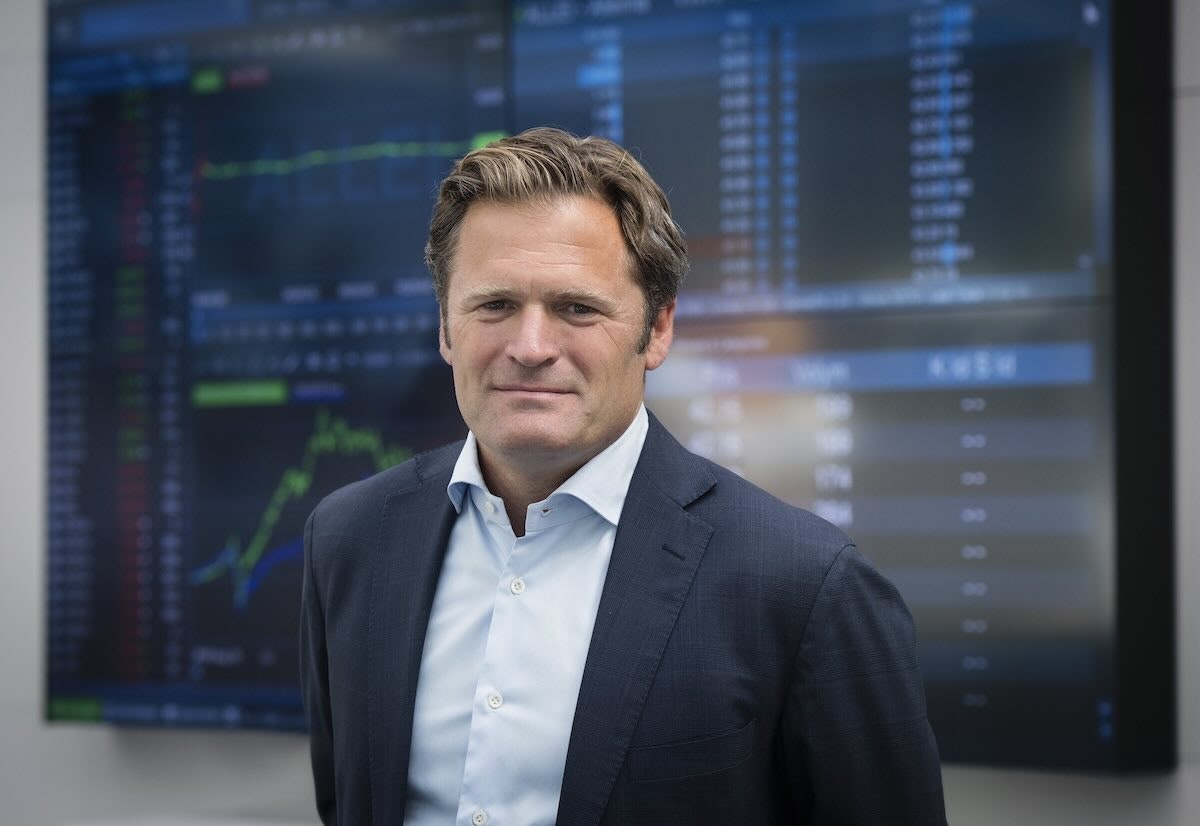In 2020, London’s fintechs raised $4.5bn — almost half of all Europe's fintech capital, with Revolut and Ki Insurance leading the way with $500m funding rounds each. And 2021 looks just as strong: this week, Wise went public with shares opening at £8 per share, valuing the company at £8bn.
While the full impacts of Brexit and Covid-19 on fintech are yet to be seen, it’s clear the sector continues to thrive in London.
“If you were to compare London to the states for example, you’ve got the finance centre of New York, the tech of the west coast and the policymakers of Washington,” says Karen Sandhu, head of financial, business services and technology at business growth agency London & Partners. “It’s a testbed for innovation.”
What’s next for London? How will it continue to innovate and adapt? We asked the experts.
More people are turning to digital banking
The pandemic saw increased demand for cashless and contactless payments, with more and more people turning to digital banking — many for the first time.
According to research from London-based fintech Nucoro, more than six million adults downloaded their first banking app — including from challenger banks and neobanks — in March 2020.
“I think changes to people’s lifestyles and work patterns have been really helpful to startups in banking,” says Neil Shah, a tech specialist at the London Stock Exchange. “Most people we speak to in fintech and tech have seen acceleration in the last 12 months.”
London fintech Curve, which allows customers to integrate multiple bank accounts into one smart card, recently raised nearly £10m in the largest ever equity raise on Crowdcube.
Shah also points to Wise, which streamlines international payments, as an example of a London success story. This week the company went public via a direct listing on the London Stock Exchange, the first direct listing of a tech company in London.
“We are really looking forward to Wise in the digital banking space,” he says. “Digital banking is still relatively under penetrated, like ecommerce was 10 years ago. You can see where the train is headed.”
Digital banking is still relatively under penetrated, like ecommerce was 10 years ago. You can see where the train is headed.
Sandhu adds that newer banks are increasingly turning to open banking — where fintechs can directly access consumer banking data for more personalised services.
She says this will continue to challenge traditional banking, as new fintech products will be able to better serve customers who were previously excluded. An example of this is London-based Bud, which uses open banking to allow bank customers to contribute to their credit history with their rent payments.
Higher demand for greener financial services
The demand for green financial services is growing rapidly, and Sandhu says London is a leading force. According to London & Partners’ research, London is home to 30% of the 62 green fintech startups in Europe, and investment in green fintech companies grew by 50% in 2020. 2021 funding is expected to surpass this in both deal count and deal value.
“We’ve got the London Stock Exchange which is the greenest exchange in the world,” she says, referring to LSE being named Stock Exchange of the Year in the 2020 and 2021 Environmental Finance Sustainable Investment Awards. It was also the first major exchange to establish a dedicated Green Bond Segment, which has raised £70bn.
We’ve got the London Stock Exchange which is the greenest exchange in the world.
“There are real signs of early growth of a new generation of European fintechs offering environmentally friendly alternatives to fight climate change.”
Duncan Grierson, founder of Clim8, the world’s first investment platform focused solely on companies making a positive impact on climate change, echoes Sandhu, and says London has become a hotbed for sustainability startups.
“I think people are now more interested in sustainability and climate change than they were before Covid-19,” he says. “Now is a very good time to be launching this kind of platform.”
Launched in March earlier this year, Grierson says Clim8 has raised over £9m in seed funding and sees ample opportunity for other green fintechs.
“Startups and people are seeing opportunities to have an impact, reduce carbon, build more sustainable businesses,” he says. “There are lots of very interesting startups coming through.”
An increase in ‘tech for good’
The growing appetite for better businesses doesn’t just stop at the climate, says Shah.
“Over the last five years, we’ve seen a shift from pure focus on profit maximisation to now delivering profits with a purpose,” he says. “We are seeing that in so many ways. It’s not just about reducing your carbon footprint, it’s about having a diverse and inclusive workforce, and a greater focus on employee wellbeing.”
It’s not just about reducing your carbon footprint, it’s about having a diverse and inclusive workforce, and a greater focus on employee wellbeing.
Grierson agrees: “I think now people are much more thoughtful than they were, even a year ago, about where they work and some of those people will end up starting companies, which have a good purpose,” he says. “That broader ‘tech for good’ trend will continue.”
Disruptive insurtech
Another area of growth is insurance tech. According to Dealroom research, insurance is a largely undisrupted $6tn industry.
In London, VC investment into insurtech has grown rapidly, with London-based insurtech companies receiving $718m VC investment in 2021 so far, up from $231m in the first half of 2020, according to L&P research.
“It’s a market that has a lot of potential,” says Shah.
London insurance provider Urban Jungle is one example, says Sandhu. “They use data and machine learning to detect fraud,” she says. “Their tech platform means they can also rapidly grow their customer base.”
More collaboration with Europe
Despite Brexit, Sandhu and Shah see London collaborating even more with Europe-based businesses in the future.
Almost 1.5k EU-based financial services firms have applied for permission to operate in the UK, according to government data released under a Freedom of Information request by Bovill, a financial regulatory consultancy.
“We haven’t seen the big exodus of international talent that was predicted shortly after the referendum vote,” says Sandhu. “London is still a truly global financial centre, and we’re continuing to collaborate with other European tech hubs like Berlin and Paris.“
Shah notes that European companies and founders have done “tremendous things” for the fintech sector, highlighting Trustpilot and Just Eat from Denmark, and Wise which has Estonian founders.
“I think we’ve got a lot to be thankful for from our European colleagues,” he says. “Change always brings opportunity and tech companies, especially fintech companies, are trying to capitalise on that.”
London & Partners’ latest report digs into the future of fintech, providing a snapshot of the next big innovations in London’s ecosystem. Download it here.




